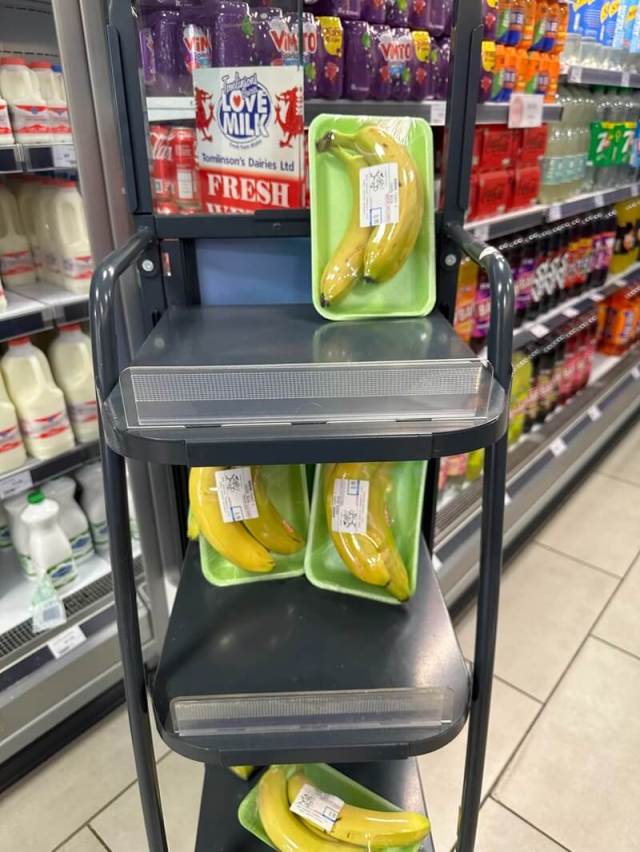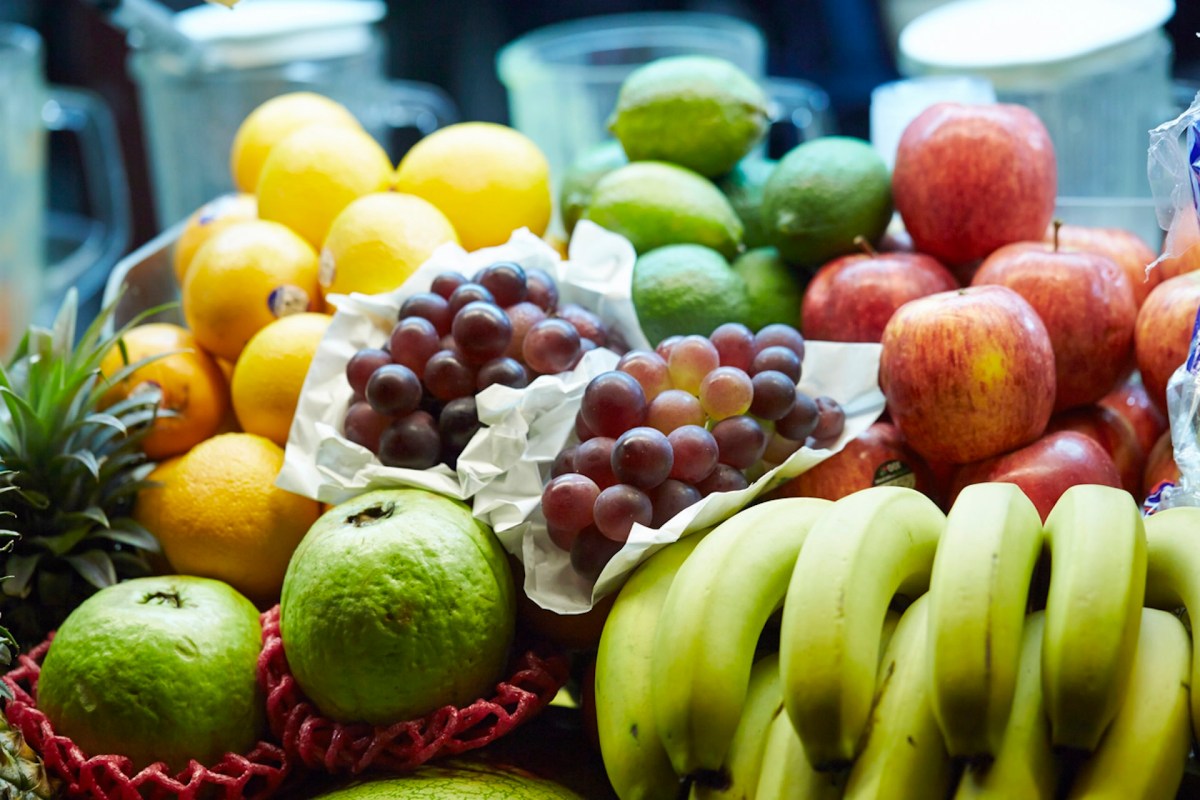Plastic-packaged fruits and vegetables have been popping up in stores around the world, taking over aisles once reserved for loose produce. While the packaging can sometimes group and sort items or protect them from damage, it's often unnecessary — and may even make matters worse.
A frequent target for this treatment is bananas, as one Redditor recently discovered.
What happened?
The user snapped a photo of the package they found and shared it in r/mildlyinfuriating. "My local shop," they explained. "The banana skin wasn't enough packaging, apparently!"

The photo shows a tall display at the corner of a grocery store aisle. It's loaded with bananas packed two or three at a time into bright-green styrofoam trays. They're sealed with cling film and price stickers declaring them "Class 1" bananas from Costa Rica.
Why does the packaging matter?
As one commenter pointed out, the 99-cent price tag was suspiciously high for only three bananas, which are usually inexpensive when these fruits are sold by weight.
"Probably done to raise the price without you realizing," they said.
Even if that's not the case, the packaging drives prices up, since the materials and labor to separate and wrap the bananas cost money.
Furthermore, being enclosed will actually make the bananas ripen and spoil more quickly. "When I worked in produce at a grocery store, we offered little paper bags for people to put the bananas in if they wanted them to ripen quicker," said one user.
After all that, the unnecessary and wasteful packaging is almost impossible to recycle — it will either become litter that will release microplastics into the environment, or it will spend the next hundred years or more in a landfill.
What could the company do differently?
Luckily, there's a simple solution in the case of bananas. Thanks to their thick peels, they easily tolerate being sold loose. Minor scrapes and bruises are more likely to damage the peel than the fruit, and they come in natural bunches, so they don't need to be packaged together.
If some bananas need to be packaged separately, paper bags or cardboard boxes are more breathable than plastic and will help slow down the spoiling process.
What can I do about plastic waste?
When you shop for groceries, choose a store that uses as little plastic packaging as possible, or at least stick to plastic-free brands. Sometimes local growers are the best option — just be sure to check their policies about growing conditions and packaging, since not all are eco-friendly.
You can also grow many types of produce at home so you know exactly what goes into every bite!
Join our free newsletter for cool news and actionable info that makes it easy to help yourself while helping the planet.









